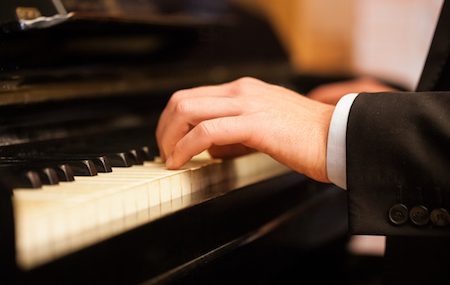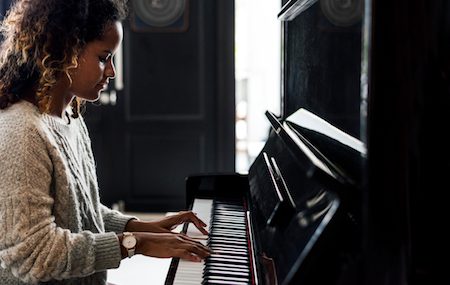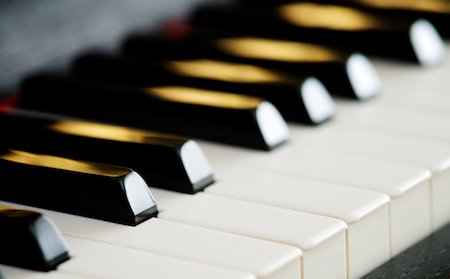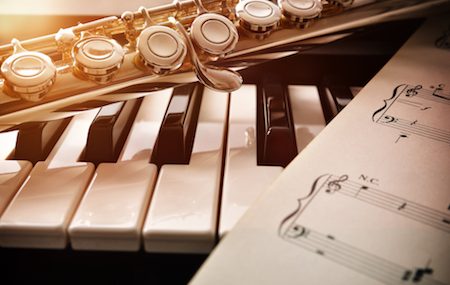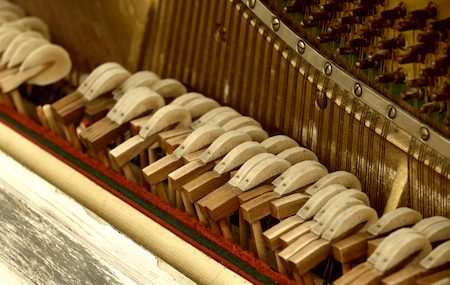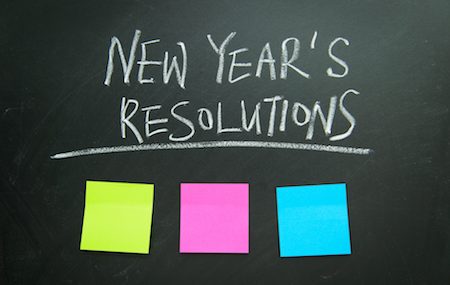A lot of things can impact your piano. The air supply. The weather. The way you play. The condition of the room.
If you’re bringing a piano into your home, and you want it to remain in good condition for years to come, there are multiple things you should do to keep your piano healthy. Here’s where to start.
Think about placement
Do you have a spot picked out inside your home where you anticipate placing your piano? Take another look at that spot. The wrong spot can have a detrimental impact on keeping your piano in good playing condition. The inner workings can’t take extreme temperatures or variances in air quality. Therefore you should avoid:
- Placing a piano against an outside wall
- Placing a piano underneath a window
- Placing it next to a door on an outside wall
- Placing it near vents and registers
- Placing it near a fireplace
- Placing it near a window or door that is opened frequently
- Placing it in direct sunlight
And all of these can cause the wood in the inner workings of the piano to expand and contract quickly, risking cracks in the overall structure of the piano.
Think about daily habits
Depending on the size of your piano, it may take center stage within your room. Grand pianos often have a commanding presence, and change everyday living space into full-fledged music rooms.
Yet don’t turn your piano into a clutter station. The only thing that belongs on a piano is sheet music. Don’t be tempted to put a flower vase on your piano; pianos and water don’t mix.
Skip placing books, picture frames, or even nicknacks on top; it can take away the sound quality of the instrument.
If you do smoke, avoid smoking near your piano. The soot and smell can impact the tonal quality and looks of your piano.
If you don’t play regularly, you may even wish to consider closing the lid to protect the piano keys, and consider a piano cover to ensure the finish stays protected.
Every piano is unique. With every piano, it’s playability is determined by the instrument itself as well as how well it is treated inside your home. Take care of your piano, keep your piano healthy throughout the years, and it will last you for generations.
